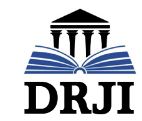Law and Development: Workers Welfare Based on the Principles of a Welfare State
Abstract
The concept of a welfare state is a system of government that aims to improve the welfare and quality of life of its citizens, including basic needs such as health, education, housing, and social security. A welfare state seeks to reduce social and economic disparities through income redistribution and equitable fiscal policies. Workers play a key role in social welfare development. Employment is a vital issue for many people and ultimately reflects the level of progress of a country's development. Workers must earn a decent living. This aligns with the demands of a welfare state to protect the people from negative aspects. Indonesia, as a country that adheres to the principles of a welfare state, carries out national development, particularly in the development of quality human resources, such as workers. Workers must receive welfare guarantees from the state based on the principles of a welfare state. The problem is How is the government's effort in realizing the development of workers' welfare based on the principles of the welfare state? The research method used is normative juridical with secondary data sources. The government's efforts in realizing the development of workers' welfare based on the principles of the welfare state through laws and regulations, for example Law No. 40 of 2004 concerning the National Social Security System (SJSN), and institutions established by the state to realize workers' welfare in accordance with the principles of the welfare state. such as the Employment Planning and Development Agency (Barenbang), the Directorate General at the central level, the Manpower Office at the provincial and city/district levels, BPJS Employment, Technical Implementation Units (UPTD) such as the Job Training Center. The laws and regulations and institutions established with their respective institutional duties and responsibilities are realized through programs from each institution.
Keywords
Full Text:
PDFReferences
Ari Agustina & Khairul Saleh, et.al, (2018), Hubungan Kesejahteraan Karyawan Dengan Kinerja Karyawan Pada Hotel Lusy Di Bandar Lampung, Jurnal Manajemen Mandiri Saburai Vol. 02, No.02.
Budi Setiyono, (2018), Model Dan Desain Negara Kesejahteraan (Welfare State), UPT Percetakan UNDIP.
Badan Perencanaan dan Pengembangan Ketenagakerjaan, (2021), Indeks Pembangunan Ketenagakerjaan (Pusat Perencanaan Ketenagakerjaan Badan Perencanaan dan Pengembangan Ketenagakerjaan Kementerian Ketenagakerjaan).
Dewi Asri Puannandini & Dwinan Ali Dzulfqar, et.al, (2023), Kesejahteraan Pekerja Sebagai Upaya Perlindungan Hak Asasi Manusia, Jurnal Media Akademik (JMA) Vol.3, No. 7.
Elviandri & Khuzdaifah Dimyati, et.al, (2019), Quo Vadis Negara Kesejahteraan: Meneguhkan Ideologi Welfare State Negara Hukum Kesejahteraan Indonesi, Mimbar Hukum Volume 31, Nomor 2.
Fitriana, (2022), Menggagas Arah Kebijakan Ketenagakerjaan Yang Berkeadilan Demi Mewujudkan Kesejahteraan Pekerja/Buruh, Jurnal Hukum & Pembangunan Jurnal Hukum & Pembangun,” Jurnal Hukum & Pembangunan Jurnal Hukum & Pembangun 52, no. 2.
Kementerian Tenaga Kerja dan Transmigrasi, (2011), Perkembangan Ketenagakerjaan Di Indonesia Menteri Tenaga Kerja dan Transmigrasi Republik Indonesia.
Lamijan & Jamal wiwoho, (2021), Upah Kerja Dan Keadilan: Suatu Tinjauan Teoretis, Penerbit CV. Pena Persada.
Nur Solikin, (2019), Pengantar Metodologi Penelitian Hukum, CV. Penerbit Qiara Media.
Rini Nurhayati et al., (2024), Rencana Tenaga Kerja Nasional 2025-2029 (Kementrian Ketenagakerjaan RI Badan Perencanaan dan Pengembangan Ketenagakerjaan Pusat Perencanaan Ketenagakerjaan).
Undang-Undang Republik Indonesia Nomor 13 Tahun 2003 Tentang Hukum Ketenagakerjaan (2003).
Aji Halim Rahman, “Sistem Upah Berdasarkan Prinsip Keadilan Dalam Konsepnegara Kesejahteraan (Welfare State),” Presumption of Law, no. 2 (n.d.), https://jurnal.ugm.ac.id/jmh/article/view/16677,
H Zulkarnain Ibrahim, (2015), Hakikat Hukum Pengupahan Dalam Upaya Mewujudkan Kesejahteraan Sosial Pekerja,” MMH 44, no. 4.
Ismi Pratiwi Podungge, “Eksistensi Serikat Buruh Dalam Upaya Memperjuangkan Hak Upah Pekerja (Dalam Penetapan Upah Minimum),” Jurnal Hukum Lex Generalis 1, no. 2 (2020), https://jhlg.rewangrencang.com/.
M J Maspaitella and Nancy Rahakbauwi, (2014), Pembangunan Kesejahteraan Sosial: Pemberdayaan Masyarakat Dalam Pendekatan Pekerja Sosial,” Aspirasi 5.
M. Riyanto & Vitalina Kovalenko, (2023), Partisipasi Masyarakat Menuju Negara Kesejahteraan: Memahami Pentingnya Peran Aktif Masyarakat Dalam Mewujudkan Kesejahteraan Bersama,” Jurnal Pembangunan Hukum Indonesia Vol. 5, No. 2.
Muyassar, “Analisis Kebijakan Redistribusi Pendapatan Dan Perubahan Sosial-Ekonomi: Studi Kasus Kesejahteraan Di Indonesia,” Indonesian Journal of Political Studies 4, no. 1 (2024), https://doi.org/10.15642/ijps.
Muhammad Fadli, (2014), Optimalisasi Kebijakan Ketenagakerjaan Dalam Menghadapi Masyarakat Ekonomi ASEAN 2015,” Jurnal Rechtvinding 3, no. 2.
Muhammad Rifqi &Rokhi Nur Hamim Febrian, (2004), Program Prakerja Sebagai Peningkatan Kualitas Kerja Dalam Perspektif Komunikasi Pembangunan Dan Tujuan Pembangunan Berkelanjutan,” Journal of Environmental Economics and Sustainability, no. 3, 2004.
Nabila Marsiadetama Ginting et al., “Implementasi Indonesia Menuju Negara Kesejahteraan Melalui Perlindungan Pekerja Anak Berdasarkan Perpres Stranas BHAM,” Neoclassical Legal Review: Journal of Law and Contemporary 4, No. 1 (2025).
Nurdin & Elviandri, (2023), Sosial dalam Perspektif Demokrasi dan Otoritarian: Analisis Perbandingan Inggris dan Singapura, PARAPOLITIKA Journal of Politics and Democracy Studies (JPDS) Volume 4 Nomor 2.
Nyimas Lita Aprianty, (2021), Tinjauan Yuridis Perlindungan Pekerja/Buruh Dalam Perjanjian Kerja Waktu Tertentu (Pkwt) Berdasarkan Undang-Undang Nomor 13 Tahun 2003 Tentang Ketenagakerjaan,” Jurnal Mitra Pembangunan 3, http://sp2010.bps.go.id/.
Sri Maryanti & Hardi, “Analisis Indeks Pembangunan Ketenagakerjaan di Provinsi Riau,” Pekbis Jurnal Vol, 8, No. 2 (2016).
Wahyu &, Solechan, et.al Rissa Sushmitasari, (2016), Tinjauan Yuridis Perlindungan Hukum Berkaitan Dengan Pengupahan Bagi Pekerja Kontrak,” Dipenogoro Law Review 5, no. 2.
Mochamad Rangga Septiyadi & Ety Rahayu, Program Kartu Prakerja Sebagai Program Pemberdayaan Di Bidang Ketenagakerjaan Di Tengah Pandemi, chrome-extension://efaidnbmnnnibpcajpcglclefindmkaj/https://scholarhub.ui.ac.id/cgi/viewcontent.cgi?article=1055&context=jpm, Diakses 24 Sept 2025.
Marsudi Dedi Putra, (2021), Negara Kesejahteraan (Welfare State) dalam Perspektif Pancasila, LIKHITAPRAJNA Jurnal Ilmiah, Volume 23, Nomor 2.
DOI: https://doi.org/10.46576/ijsseh.v6i3.7912
Article Metrics
Abstract view : 40 timesPDF – 20 times
Refbacks
- There are currently no refbacks.
Copyright (c) 2025 Rehulina Rehulina

This work is licensed under a Creative Commons Attribution-NonCommercial-ShareAlike 4.0 International License.
Dharmawangsa International Journal Indexed by:
Member Of :
Dharmawangsa: International Journal of the Social Sciences, Education and Humanitis Published By:
UNIVERSITAS DHARMAWANGSA
Alamat : Jl. K. L. Yos Sudarso No. 224 Medan
Kontak : Tel. 061 6635682 - 6613783 Fax. 061 6615190
Email : dharmawangsajournal@dharmawangsa.ac.id
Dharmawangsa:International Journal of the Social Sciences, Education and Humanitis by Universitas Dharmawangsa Medan is licensed under a Creative Commons Attribution-NonCommercial-ShareAlike 4.0 International License.
Based on a work at: https://jurnal.dharmawangsa.ac.id/index.php/dharmawangsa/index

11.jpg)
















